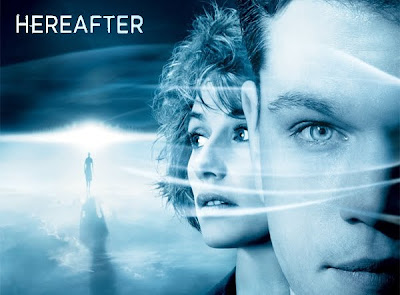Review of Hereafter, Directed by Clint Eastwood
Review by KENDRICK KUO
The very name and premise of Hereafter promise viewers an exploration of the afterlife. Stylistically and in substance, the film fails to do the topic any justice. Hereafter follows three lives—a young boy in Britain who loses his twin brother, a French journalist that “dies” during the tsunami in Indonesia, but is resuscitated, and an American man who is able to communicate with the dead. Sounds like the makings of a deep, multi-faceted, philosophical movie, doesn’t it?
All three are looking for answers. George, the clairvoyant, tries to abstain from his ability, but people keep on asking him for his services to speak with loved ones. He admits he still has no answers even though he’s dialoged with the dead countless of times. After a spiritual experience while she was flat-lined, French journalist Marie is intellectually captivated by this question of what happens after we’re dead, convinced that we couldn’t simply cease to exist. Marcus somehow believes Jason, his brother who dies in a car accident, is still out there and all he needs is the proper medium to reach him. Unfortunately, Hereafter doesn’t deliver any consolation nor does it offer a worthwhile attempt.
Hereafter reflects our times. Organized religion is an archaic notion. Materialist naturalism may have heard its death knell in the academic halls of philosophy and theoretical physics, despite the ongoing culture wars. We as a culture have embraced the “spiritual” realm—an ambiguous, wishy-washy, primordial swamp. Out of this goo climbs the notion that mystery and the Unknown are beautiful. Truth is dogmatic and ugly.
Hence it’s not surprising that none of the major religions are seriously considered as potential sources of answers. Marie doesn’t even investigate religious experiences, but goes straight to a hospital/institute that helps people die peacefully while also attempting to piece together what exactly is beyond the pale. The closest Marcus gets to religion is two “YouTube” videos, one of a Muslim and another a Christian, each running around 10 seconds. And George, the psychic, tries to run away from the answers.
In many ways, Hereafter is about the journey. Perhaps I should write Journey, with a capital “J”. The spiritual, leading to the mysterious, gives birth to the quip that the end isn’t as important as the quest. We are always in a state of becoming. To become is to die. Am I starting to sound unintelligible? Exactly.
The beauty of Christ is obfuscated in the mire of a misplaced exaltation of mystery. Christ has explained that what comes in the Hereafter is judgment. Preoccupation with the Journey to judgment is futile unless that Journey is the Pilgrim’s Progress whereby the End is already certain.
Contrary to what it may have tried to be, Hereafter can be viewed as an indictment of the current state of cultural negligence toward substantively wrestling with the question of death.









